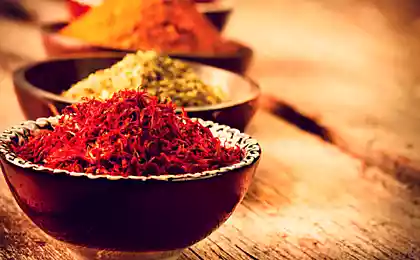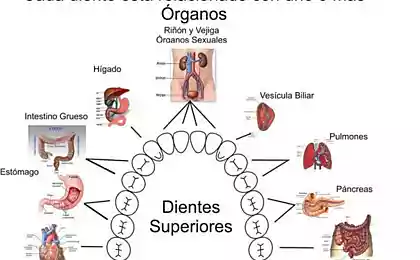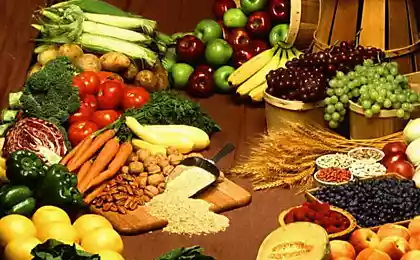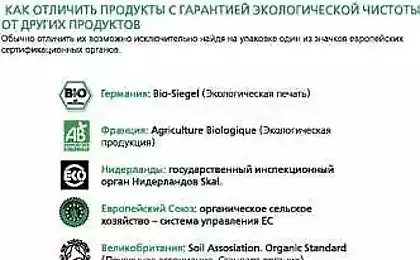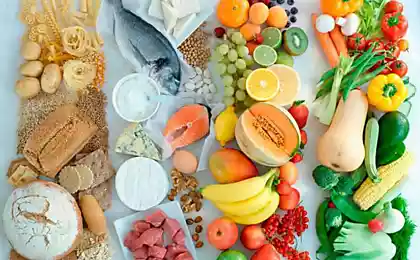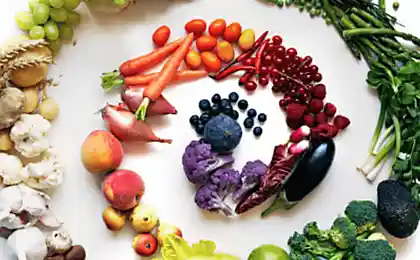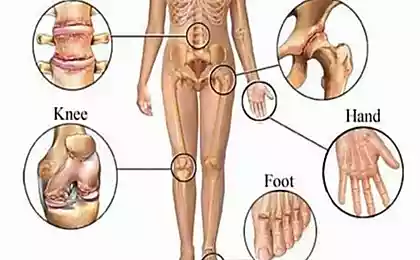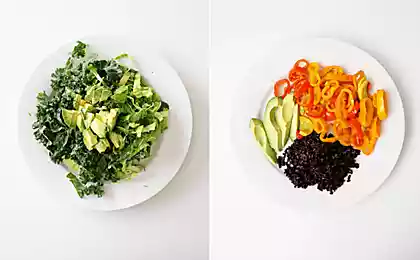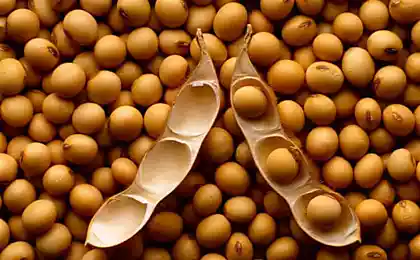1138
Products and bodies
Everyone knows that fruits and vegetables are good for our body. But it turns out, some of the products reflect the parts of the body and also provide them with nutrients.
10 photos
1. Carrots: eyes
If we cut across the carrot is easy to see that this vegetable resembles an eye. It turns out that chewing carrots still good for eye health. It is full of vitamins and antioxidants such as beta-carotene, which reduce the likelihood of macular degeneration, which is the cause of vision loss in the elderly.
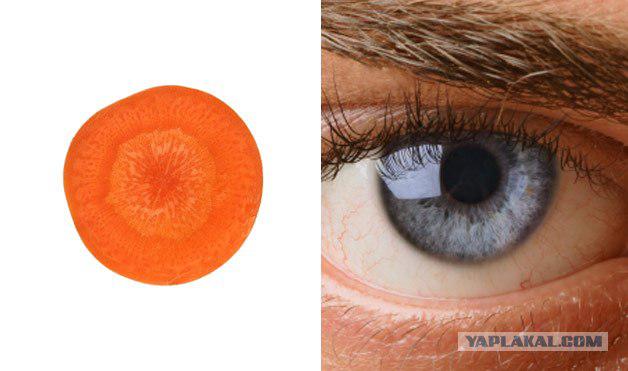
2. Walnut: brain
Folds and wrinkled walnut bring to mind another human organ: the brain. Even the outline of the nut resembles the body. A division of walnut into two halves also seem to divide the brain into left and right hemisphere. And the similarity is not surprising, walnuts is called "food for the brain." They have a very high content of omega-3 fatty acids that help maintain its function.
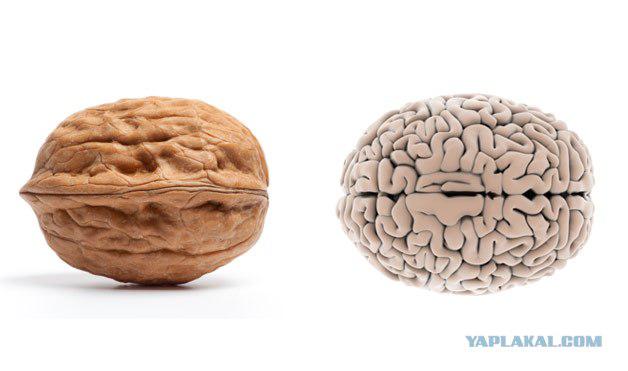
3. Celery: bone
Long stalks of celery look like bones and is also useful for them. Celery - a source of silicon, which is part of the molecular structure of bones. Another funny coincidence: bones, like celery, contain 23% sodium
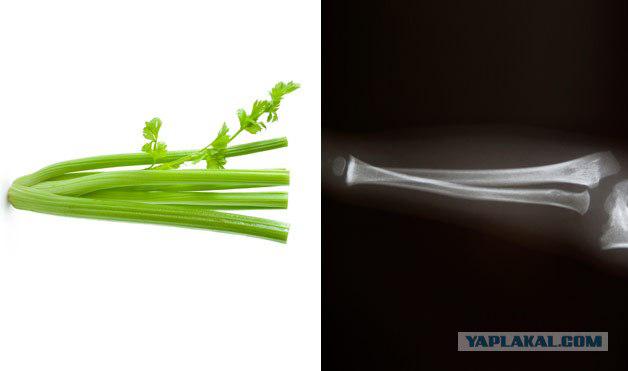
4. Avocado: the uterus
Lampochkoobraznaya form avocado reminds uterus. Avocados also supports reproductive health. He is a good source of folic acid, which reduces the risk of cervical dysplasia, which is a precancerous condition
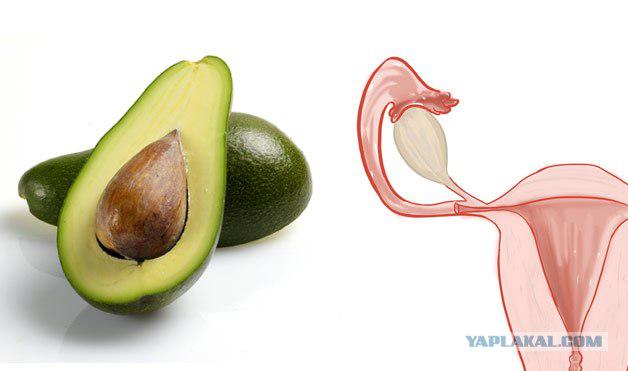
5. Tomato: heart
If you cut a tomato, you can see that the red fruit has several chambers that resemble the structure of the heart. Studies have shown that lycopene, which is found in tomatoes, reduces the risk of cardiovascular diseases in men and women. And if you mix the tomatoes with a small amount of fat, such as olive oil or avocado, it is possible to increase the amount of lycopene absorbed by the body almost ten times.
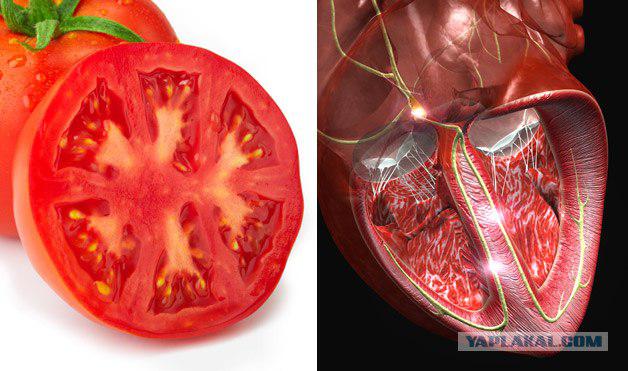
6. Red wine: blood
Red wine is rich in antioxidants and polyphenols, looks like blood. When you drink it, you really filled with healthy material that protects from destructive substances in the blood, such as LDL cholesterol, which can cause heart disease. Red wine also contains substances thinning the blood, thus reducing the amount of blood clots, which are associated with cardiovascular diseases and stroke.
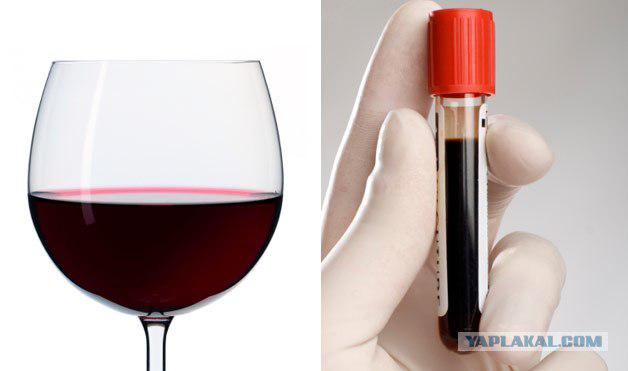
7. Ginger: stomach
Ginger root is somewhat reminiscent of the digestive organ. And has long been known that ginger helps fight seasickness and symptoms departure due pungent odor and taste. Scientists from Denmark found that the crushed root of this plant suppresses nausea and vomiting, even in cases where they are strongly expressed and require hospitalization. Ginger is also good help from nausea to many pregnant women.
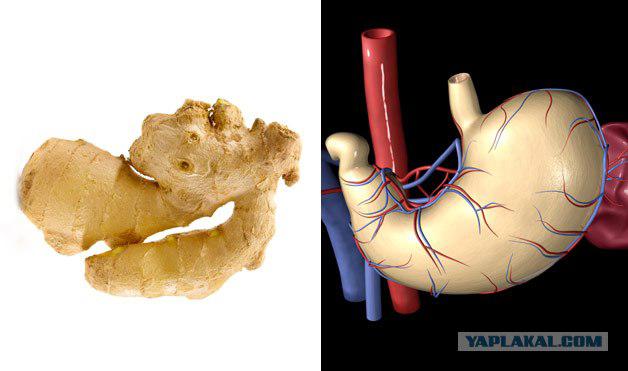
8. Sweet potatoes: pancreas
Oblong sweet potato is very similar to the pancreas, as well as contributes to its healthy functioning. It contains lots of beta-carotene, which is a powerful antioxidant that protects all body tissues, including pancreas, from damage due to aging or cancer.
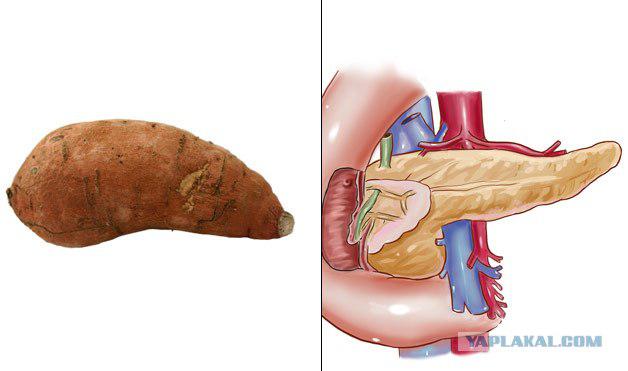
10 photos
1. Carrots: eyes
If we cut across the carrot is easy to see that this vegetable resembles an eye. It turns out that chewing carrots still good for eye health. It is full of vitamins and antioxidants such as beta-carotene, which reduce the likelihood of macular degeneration, which is the cause of vision loss in the elderly.

2. Walnut: brain
Folds and wrinkled walnut bring to mind another human organ: the brain. Even the outline of the nut resembles the body. A division of walnut into two halves also seem to divide the brain into left and right hemisphere. And the similarity is not surprising, walnuts is called "food for the brain." They have a very high content of omega-3 fatty acids that help maintain its function.

3. Celery: bone
Long stalks of celery look like bones and is also useful for them. Celery - a source of silicon, which is part of the molecular structure of bones. Another funny coincidence: bones, like celery, contain 23% sodium

4. Avocado: the uterus
Lampochkoobraznaya form avocado reminds uterus. Avocados also supports reproductive health. He is a good source of folic acid, which reduces the risk of cervical dysplasia, which is a precancerous condition

5. Tomato: heart
If you cut a tomato, you can see that the red fruit has several chambers that resemble the structure of the heart. Studies have shown that lycopene, which is found in tomatoes, reduces the risk of cardiovascular diseases in men and women. And if you mix the tomatoes with a small amount of fat, such as olive oil or avocado, it is possible to increase the amount of lycopene absorbed by the body almost ten times.

6. Red wine: blood
Red wine is rich in antioxidants and polyphenols, looks like blood. When you drink it, you really filled with healthy material that protects from destructive substances in the blood, such as LDL cholesterol, which can cause heart disease. Red wine also contains substances thinning the blood, thus reducing the amount of blood clots, which are associated with cardiovascular diseases and stroke.

7. Ginger: stomach
Ginger root is somewhat reminiscent of the digestive organ. And has long been known that ginger helps fight seasickness and symptoms departure due pungent odor and taste. Scientists from Denmark found that the crushed root of this plant suppresses nausea and vomiting, even in cases where they are strongly expressed and require hospitalization. Ginger is also good help from nausea to many pregnant women.

8. Sweet potatoes: pancreas
Oblong sweet potato is very similar to the pancreas, as well as contributes to its healthy functioning. It contains lots of beta-carotene, which is a powerful antioxidant that protects all body tissues, including pancreas, from damage due to aging or cancer.





